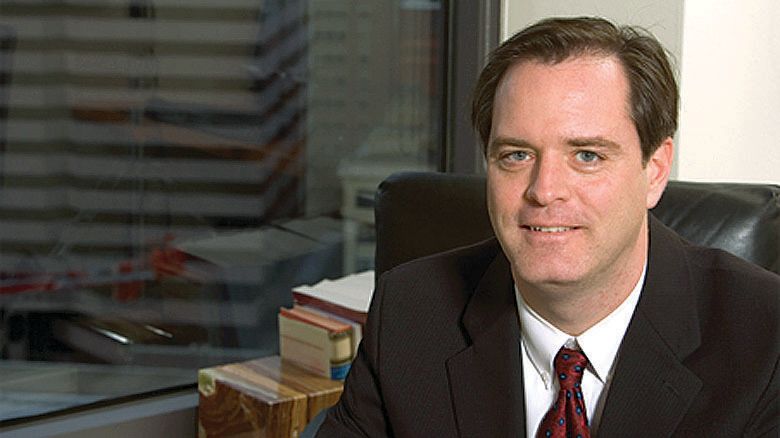A New College Grad Wins an Epic Environmental Battle

Rob Bilott, a 50-year-old environmental attorney at Taft Stettinius & Hollister LLP in Cincinnati, has spent the last 18 years of his career fighting DuPont over its use of perfluorooctanoic acid, or PFOA, better known as the chemical that makes Teflon. In January, he was profiled in The New York Times Magazine story, “The Lawyer Who Became DuPont’s Worst Nightmare.” Bilott’s long battle revealed that DuPont knew that PFOA posed health risks decades ago and hid the information from its workers, nearby residents and government agencies. His 2001 class action lawsuit against the chemical giant resulted in a 2004 settlement worth more than $300 million and also launched a seven-year landmark medical study that proves PFOA is linked to six diseases. His fight continues this year with personal injury and wrongful death suits. A New College of Florida alum, Bilott regularly vacations in Sarasota with his family.
What has this case meant to you?
It’s obviously been a large focus of my career for the last 15 or more years. When you see something that needs to be done or information that you believe needs to get out in order to protect people’s health and your clients, and you’re having great obstacles, that can be taxing. At the same time, finding ways to achieve those goals is invigorating.
How did you get involved?
The original connection was through my mom’s family. That’s how they [West Virginia farmer Wilbur Tennant and his family] came to contact me. After we agreed to sit down and meet with them, the evidence was overwhelming. This was something clearly bad going on and we felt we could help.
What’s unique about this case?
It was an innovative approach to settling a toxic tort case. The traditional approach would have been to take these issues to trial and have it presented by competing experts to a jury. Under the settlement agreement [which included a $70 million cash award], both parties agreed to set up the scientific panel that would look at available data. The plaintiffs came up with the idea of using the $70 million [instead of distributing it] to give to an independent science panel for blood testing and data collection.
What diseases did the scientists conclude are linked to PFOA?
Kidney cancer, testicular cancer, ulcerative colitis, thyroid disease, preeclampsia and high cholesterol. Part of the settlement agreement was that if links were found between the exposure and the disease there could be medical monitoring up to $235 million. And that people could pursue claims if those links were found.
You’re now handling those claims of personal injury and wrongful death.
Of the 70,000 people in six different public water supplies and several dozen private wells, which are considered in the scope of our [class-action suit], about 3,500 of the claims pending now are the ones that already have one of these particular diseases. We’ve got cases scheduled though the end of this year [the first one is a testicular cancer case that starts in May] and the court recently announced that in the beginning of 2017, there will be 40 trials a year.
How have you changed by doing this case?
Grayer hair and less of it.
What personality traits have helped you persevere?
Stubborn, focused, determined.
What impact did New College have on you?
They did a great job in teaching you how to think and how to think critically, how to analyze data, how to question what you’re seeing and look at it for yourself. I tried to avoid anything that involved numbers or math. It was rather ironic that I ended up dealing with chemicals.
If you could construct a perfect ending to all this litigation, what would it be?
We would like for all of the folks who have been injured to have their injuries addressed appropriately.
What lessons can we all learn from this case?
You can make change in significant ways that could affect way beyond your own community. The information that was revealed here deals with something that is in everyone’s blood across the world.
How did you feel about being called DuPont’s worst nightmare?
[Laughs…long pause] I did not mind.



